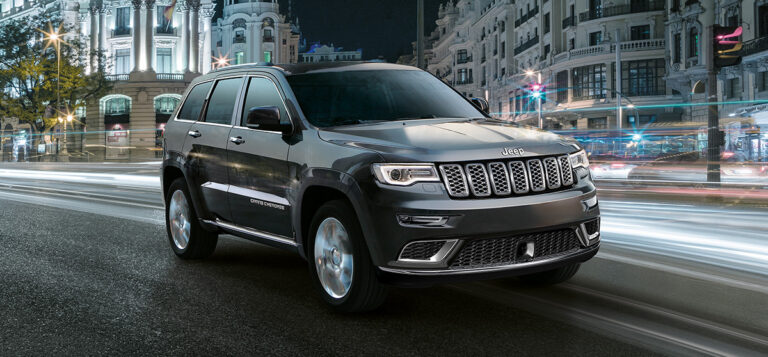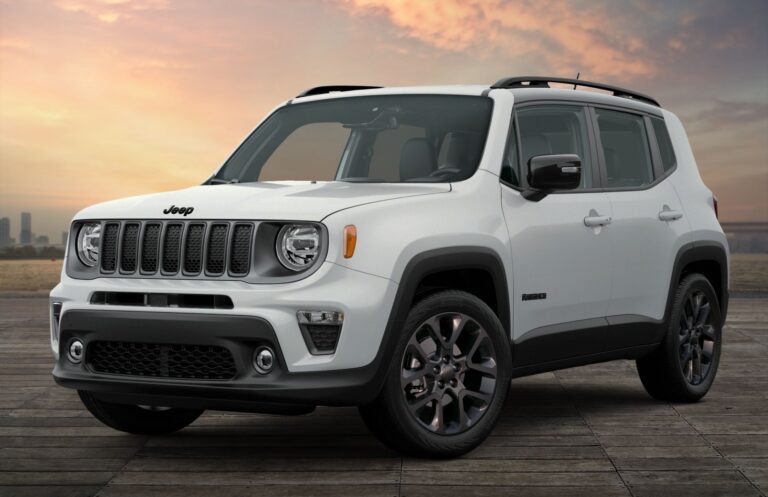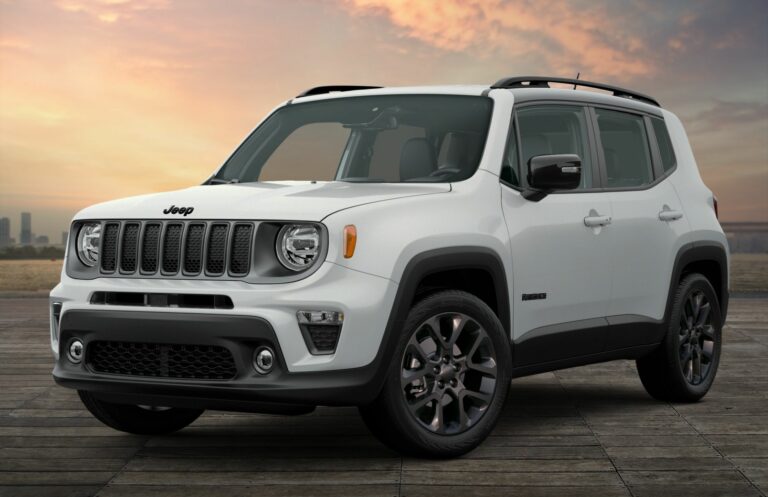Electric Jeep For Sale: Navigating the Trail to an Electrified Adventure
Electric Jeep For Sale: Navigating the Trail to an Electrified Adventure jeeps.truckstrend.com
The iconic image of a Jeep conquering rugged terrain, its engine roaring, is deeply ingrained in the automotive psyche. But what if that roar was replaced by a near-silent hum, propelled by instant torque and zero emissions? Welcome to the era of the electric Jeep. The concept of an "Electric Jeep For Sale" is no longer a futuristic dream but a rapidly expanding reality, representing a pivotal shift in how we approach adventure, sustainability, and off-road capability.
This comprehensive guide will delve into every aspect of electric Jeeps, from the revolutionary models hitting the market to the practical considerations for prospective buyers. Whether you’re a seasoned off-roader looking for an eco-conscious upgrade, a daily commuter seeking efficiency, or simply curious about the future of this legendary brand, understanding the landscape of electric Jeeps is essential. They offer a unique blend of environmental responsibility, cutting-edge technology, and the legendary go-anywhere spirit that defines the Jeep brand, promising an exhilarating and sustainable way to explore the world.
Electric Jeep For Sale: Navigating the Trail to an Electrified Adventure
The Rise of the Electric Jeep: A New Era of Off-Roading
Jeep, a brand synonymous with freedom and adventure, is embracing electrification with a vigor that promises to redefine the off-road experience. For decades, the power and reliability of internal combustion engines have been the bedrock of Jeep’s capability. However, the move to electric powertrains introduces a new dimension of performance, especially for challenging terrains.
The journey began with the introduction of the Jeep Wrangler 4xe, a Plug-in Hybrid Electric Vehicle (PHEV) that seamlessly blends a turbocharged gasoline engine with two electric motors. This model demonstrated that electrification could enhance, rather than compromise, Jeep’s legendary Trail Rated capability. It provided instant torque, crucial for precise rock crawling and difficult ascents, alongside the flexibility of gasoline power for extended range. This initial success paved the way for more ambitious, fully Battery Electric Vehicle (BEV) models like the upcoming Jeep Recon and Wagoneer S, designed from the ground up as pure EVs, promising even greater performance and zero-emission adventures.
The appeal of electric power for off-roading is profound. Imagine navigating a serene forest trail with only the sounds of nature, or tackling a steep incline with the silent, immediate surge of electric torque. Beyond the novelty, electric powertrains offer fewer moving parts, potentially less maintenance, and a lower center of gravity due to battery placement, which can enhance stability on uneven terrain.
Key Benefits of Owning an Electric Jeep
The decision to purchase an electric Jeep comes with a host of advantages that extend beyond environmental consciousness.
- Environmental Impact: The most immediate benefit is the significant reduction in your carbon footprint. Fully electric Jeeps produce zero tailpipe emissions, contributing to cleaner air and a healthier planet. Even PHEV models drastically reduce emissions when operating in electric-only mode, particularly for daily commutes.
- Unrivaled Performance: Electric motors deliver instant torque, right from 0 RPM. This characteristic is a game-changer for off-roading, providing immediate power for climbing obstacles, navigating deep mud, or pulling through sand. On-road, this translates to exhilarating acceleration and a smooth, responsive driving experience.
- Cost Savings: While the initial purchase price might be higher for some electric models, the long-term savings can be substantial. Reduced reliance on gasoline, especially with home charging, significantly cuts fuel costs. Furthermore, electric vehicles typically require less maintenance due to fewer moving parts (no oil changes, spark plugs, or complex transmissions), leading to lower servicing expenses over the vehicle’s lifespan.
- Quiet Operation: One of the most striking benefits is the near-silent operation. This transforms the off-road experience, allowing occupants to fully immerse themselves in nature’s sounds rather than the roar of an engine. It also makes for a quieter, more refined daily commute.
- Advanced Technology Integration: Electric Jeeps often come equipped with state-of-the-art technology, including advanced infotainment systems, regenerative braking (which converts kinetic energy back into electricity to extend range), and specific EV-focused driving modes that optimize performance for different conditions.
/GettyImages-603713293-5a027100482c52001ab4901f.jpg)
Navigating the Market: Types of Electric Jeeps For Sale
The term "Electric Jeep For Sale" encompasses several distinct categories, each with its own characteristics, benefits, and considerations.
- Plug-in Hybrid Electric Vehicles (PHEVs): Currently, the most accessible electric Jeep on the market is the Jeep Wrangler 4xe and the Grand Cherokee 4xe. These models offer the best of both worlds: a substantial electric-only range (typically 20-25 miles for the Wrangler 4xe), perfect for daily commutes, coupled with a gasoline engine for extended range and traditional refueling convenience on longer trips or remote off-road excursions. They maintain all the legendary off-road capabilities while offering significant fuel savings and reduced emissions.
- Battery Electric Vehicles (BEVs): The future of the electric Jeep lineup lies in pure BEVs. Models like the upcoming Jeep Recon and the premium Wagoneer S are designed from the ground up as fully electric vehicles. These will offer significantly longer electric ranges (projected to be 300+ miles), faster charging capabilities, and the full benefits of an electric powertrain without the need for gasoline. They represent Jeep’s commitment to a fully electric future. As they enter the market, they will offer a truly zero-emission off-road experience.
- Aftermarket EV Conversions: For enthusiasts who love the classic aesthetic of older Jeeps (like CJs, YJs, or TJs) but desire modern electric power, aftermarket EV conversion kits are becoming increasingly popular. Companies specialize in swapping out traditional gasoline engines for electric motors and battery packs. These conversions offer a unique, custom-built electric Jeep, combining vintage charm with contemporary performance and sustainability. The cost and complexity can vary greatly depending on the donor vehicle and the desired specifications.
- New vs. Used Electric Jeeps: As the electric Jeep market matures, both new and used options are becoming available. Buying new offers the latest technology, full warranties, and eligibility for federal and state tax incentives. Opting for a used electric Jeep, particularly a Wrangler 4xe, can offer significant savings due to depreciation. However, when buying used, it’s crucial to inspect the battery’s health, understand its warranty status, and check the vehicle’s charging history.
Important Considerations Before You Buy
Purchasing an electric Jeep requires a different set of considerations than a traditional gasoline-powered vehicle. Being well-informed will ensure a smooth transition to electric adventuring.
- Range and Charging Infrastructure: Understanding the vehicle’s electric range is paramount. For PHEVs, this dictates how much you rely on gasoline. For BEVs, it determines how far you can travel between charges. Equally important is assessing your charging options.
- Level 1 (120V): Standard household outlet; very slow, primarily for overnight top-ups.
- Level 2 (240V): Most common for home charging; requires professional installation, significantly faster.
- Level 3 (DC Fast Charging): Public charging stations; provides rapid charging, essential for long trips (not all PHEVs support DC fast charging).
Plan your charging strategy based on your daily driving habits and access to public charging networks.
- Battery Health and Longevity: Electric vehicle batteries are designed for durability, typically warranted for 8 years or 100,000 miles (sometimes more). However, like all batteries, they can degrade over time. Inquire about battery warranties and degradation policies. Proper charging habits (avoiding consistent full charges/discharges) can help prolong battery life.
- Initial Purchase Cost vs. Long-Term Savings: Electric Jeeps, especially new BEVs, often have a higher upfront cost than their gasoline counterparts. However, factor in potential federal tax credits (up to $7,500 for eligible vehicles), state incentives, and long-term savings on fuel and maintenance. The Total Cost of Ownership (TCO) can often be lower over several years.
- Off-Road Specifics: While electric powertrains offer advantages like instant torque, specific off-road considerations remain. Water fording capabilities need to be understood for electric components, though modern designs are well-sealed. The weight distribution due to the battery pack can also influence handling and stability on extreme trails. Ensure the vehicle’s design and features align with your intended off-road use.
- Warranty and Servicing: Understand the specific warranty coverage for the electric powertrain components (battery, motors, etc.), which are often separate from the general vehicle warranty. Familiarize yourself with the dealership network’s readiness to service electric vehicles.
Practical Advice for Prospective Buyers
Making the leap to an electric Jeep is an exciting prospect. Here’s some actionable advice to guide your purchase:
- Define Your Needs Clearly: Are you primarily a city driver who occasionally hits the trails, or a dedicated off-roader needing maximum range flexibility? Your usage patterns will dictate whether a PHEV like the Wrangler 4xe or an upcoming BEV like the Recon is the better fit.
- Test Drive Thoroughly: Don’t just take it for a spin around the block. If possible, test drive on various terrains, including some mild off-road conditions, to truly appreciate the electric Jeep’s unique performance characteristics. Pay attention to acceleration, braking (especially regenerative braking feel), and overall handling.
- Assess Home Charging Solutions: For optimal convenience and cost savings, installing a Level 2 charger at home is highly recommended. Consult with a qualified electrician to understand the requirements and costs for your home.
- Understand Available Incentives: Research federal, state, and local tax credits, rebates, and grants for electric vehicle purchases. These can significantly reduce the effective price of the vehicle. Incentive programs can change, so verify current eligibility.
- Read Reviews and Join Communities: Engage with current owners through online forums, social media groups, and owner reviews. Their real-world experiences can provide invaluable insights into ownership, range expectations, charging habits, and off-road performance.
Estimated Price Table for Electric Jeeps For Sale
Please note: Prices are highly variable based on trim level, optional features, market demand, location, and condition (for used vehicles). Federal, state, and local incentives may also significantly reduce the effective purchase price.
| Category | Example Models | Estimated Price Range (USD) | Key Features & Considerations |
|---|---|---|---|
| New PHEV Jeeps | Jeep Wrangler 4xe, Grand Cherokee 4xe | $55,000 – $80,000+ | Combines gas engine with electric motors; typically 20-25 miles electric-only range; Trail Rated capability; eligible for many EV incentives. |
| Upcoming New BEV Jeeps | Jeep Recon (Est. 2024/2025), Wagoneer S (Est. 2024) | $60,000 – $100,000+ | Full Battery Electric Vehicle; projected 300+ miles range; instant torque; advanced connectivity & tech. Prices are highly speculative and subject to change. |
| Aftermarket EV Conversions | Classic CJ, YJ, TJ, JK models (converted) | $30,000 – $80,000+ (kit + labor) | Transforms a classic Jeep into an EV; customizable range/power; unique and eco-friendly; cost excludes donor vehicle. |
| Used PHEV Jeeps | Jeep Wrangler 4xe (2021-Present) | $40,000 – $65,000+ | Offers significant depreciation savings; still provides electric range and off-road capability; check battery health and remaining warranty carefully. |
Disclaimer: This table provides general estimates only. Actual prices will vary. Always consult official dealer pricing and check for current incentives.
Frequently Asked Questions (FAQ)
Q1: How far can an electric Jeep go on a single charge?
A1: This depends on the type. A Jeep Wrangler 4xe (PHEV) typically offers an electric-only range of around 21-25 miles, while upcoming full BEVs like the Jeep Recon are projected to have ranges exceeding 300 miles on a single charge.
Q2: How long does it take to charge an electric Jeep?
A2: Charging times vary significantly by charging level:
- Level 1 (120V): Very slow, takes many hours (e.g., 12-15+ hours for a full charge). Best for overnight trickle charging.
- Level 2 (240V): Most common for home chargers; can fully charge a Wrangler 4xe in about 2-3 hours and a full BEV in 8-12 hours depending on battery size.
- Level 3 (DC Fast Charging): Found at public stations; can charge a BEV from 10% to 80% in 20-40 minutes. PHEVs like the 4xe typically do not support DC fast charging.
Q3: Are electric Jeeps good for off-roading?
A3: Absolutely. Electric Jeeps excel at off-roading due to instant torque delivery, which provides immediate power for overcoming obstacles. The quiet operation enhances the outdoor experience, and the lower center of gravity from battery placement can improve stability. Jeep ensures their electric models maintain the "Trail Rated" capability.
Q4: What is the lifespan of an electric Jeep’s battery?
A4: EV batteries are designed to last for many years and miles. Most manufacturers, including Jeep, offer an 8-year/100,000-mile warranty (sometimes more) on the battery and electric components, guaranteeing a certain level of capacity retention. While degradation occurs over time, it’s typically gradual and won’t severely impact range for many years.
Q5: Are electric Jeeps more expensive to maintain?
A5: Generally, no. Electric vehicles have fewer moving parts and require less fluid changes (no engine oil, spark plugs, complex transmissions). This can lead to lower routine maintenance costs compared to gasoline vehicles. However, specialized EV component repairs, if needed, might be more expensive, but they are less frequent.
Q6: Can I get a tax credit for buying an electric Jeep?
A6: Yes, eligible new electric and plug-in hybrid vehicles may qualify for a federal clean vehicle tax credit of up to $7,500. Eligibility depends on factors like the vehicle’s battery capacity, manufacturing location, and your income. State and local incentives may also be available. It’s crucial to check current IRS guidelines and local programs at the time of purchase.
Concluding Summary
The availability of an "Electric Jeep For Sale" marks a thrilling new chapter for adventure seekers and environmentally conscious drivers alike. From the capable Plug-in Hybrid Wrangler 4xe to the highly anticipated full Battery Electric Vehicles like the Recon and Wagoneer S, Jeep is electrifying its legendary lineup without compromising its core values of freedom and go-anywhere capability.
Embracing an electric Jeep means unlocking a world of instant torque, quiet trails, reduced emissions, and lower long-term running costs. While initial considerations like charging infrastructure and upfront investment are important, the benefits of owning one of these trailblazing vehicles are clear. The electric Jeep is not just a car; it’s a commitment to a more sustainable future of exploration, proving that raw power and environmental responsibility can indeed go hand-in-hand. The trail ahead is undeniably electric, and it’s calling for a new generation of adventurers.



